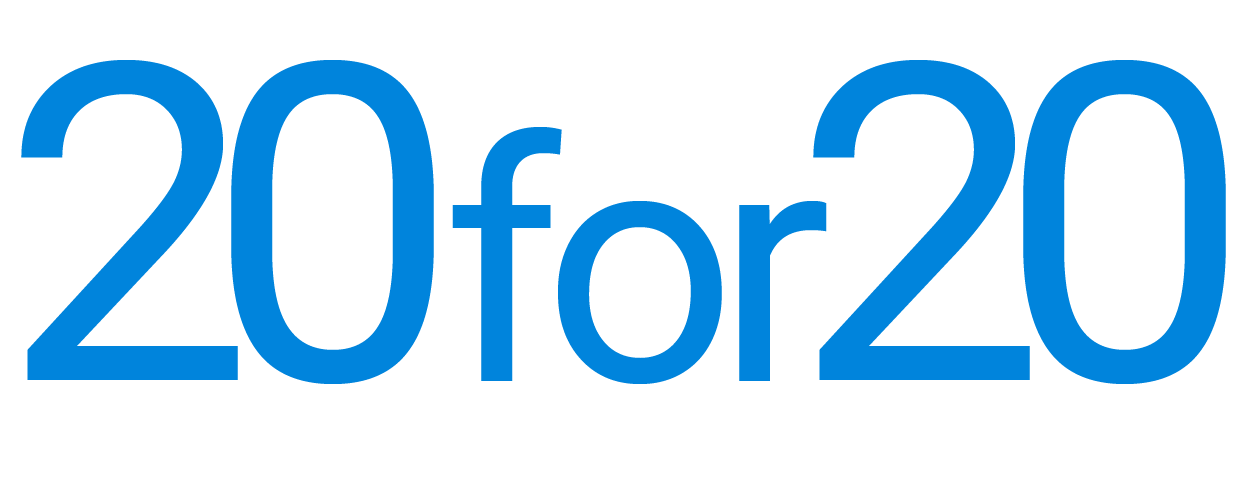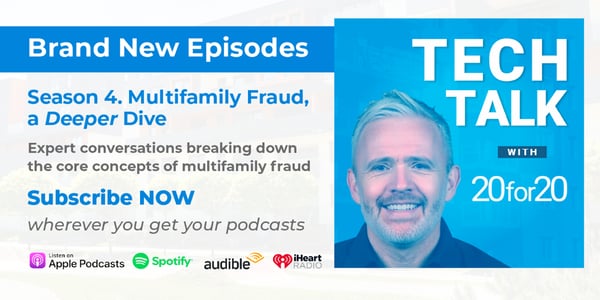
Disagreement can be a wonderful thing. It's how we test our ideas and beliefs, explore their limits and open ourselves to competing views that shape and strengthen our understanding.
We hear a lot in today's polarized world that we have lost the ability to disagree agreeably. But it's a skill for which I am seeing plenty of evidence as I record a series of conversations that dig deeper into one of the industry's most misunderstood topics: fraud prevention.
First, the premise.
Many multifamily companies are now evaluating and implementing fraud prevention software. In the last two editions of the 20for20 Annual Survey, fraud and the software that addresses it have emerged as top priorities. Yet the more I talk to the operators doing the evaluating, the more convinced I have become that evaluations usually miss critical details of both problem and solution.
"Fraud" is an unsatisfactorily broad term that we attach to a lot of different things, from stopping criminal activity to assessing whether or not a good-faith actor can afford to live in a community. It has a relationship with bad debt that relatively few companies understand. And the software providers represent a broad and divergent range of skills and approaches to solving the problem.
Add to this the hype surrounding new entrants into the fraud prevention market, adding a flood of unreliable information in an area where we should be seeking the most experienced, informed voices in the industry.
With that in mind, I've been working for several months with a group of people I believe to be among the most insightful experts in fraud and screening. Last week, we dropped the first of a series of nine podcasts, each of which dives deep into a specific aspect of fraud prevention.
Back to agreeable disagreement
An important ingredient in this series is the format. Eighteen months ago, I recorded a series of one-on-one interviews with individual leaders of individual fraud solution providers. This time, we are bringing multiple competing participants into the same conversation. The episodes are thematic, with each episode designed to go as deep as possible into a specific area of fraud prevention.
That approach pushes us firmly into the realm of education rather than promotion. (The industry does not need more pay-for-play podcast content where participants pay hosts to record a conversational sales pitch!)
As we have recorded the episodes, I have been impressed with the tone of the conversations. Competitive interests are largely pushed to the side, as participants collaborate to explore the topic. In particular, there are many instances where competitors agree disagreeably as they articulate both the points where they align and where they diverge.
That dynamic is critical to our ability to grasp details typically missed in one-sided sales pitches or marketing content. We understand, for example, the competing philosophies of how to approach the problem. We understand more about the context in which PMCs are trying to formulate the right fraud and screening policies. We can focus on cause and effect, rather than focusing on feature functionality (which is the mistake that I see many operators making at the moment).
Not your regular panel discussion
As excitement builds for OPTECH in a couple of weeks, it's also worth contrasting the format of these discussions with a typical conference panel. There is little value in recording something like an audio version of an OPTECH or NAA panel—those formats already exist.
Disagreement is quite hard to do on stage in front of a room full of people. I have come to view industry panels as a useful guide to what people are saying about a given topic, rather than as conversations that show us how things work. That is useful insight, but it's different from trying to deepen the audience's understanding of a topic.
The level of expertise among participants is a factor here. Conference organizers have to balance sponsors and memberships, as well as the luck of the draw of which panelists volunteered to take part. It inevitably leads to a mixed bag of experience and expertise on stage, and the format—in front of a live audience—biases toward agreement.
This podcast series has taken a lot of time to organize because the panelists were recruited on the basis of having a deep understanding of each topic. In the case of a property management company, that usually means someone with a strong track record of analyzing data and drawing informed conclusions. With suppliers, you want the ones who have been at the cutting edge of the fraud prevention for years.
From my own experience with podcasts—both inside and outside the multifamily industry—the most enlightening discussions come when people who are passionate about a subject are allowed, in good faith, to explore their differences. That's exactly what we've aimed to do with this series.
I won't go into more detail about the series here—a previous blog provides those details. But suffice it to say that it features a couple of dozen of the smartest and most knowledgeable people in the industry. If fraud prevention is an area you're trying to understand better, you won't find a richer source of insight anywhere in our industry.
I hope you enjoy listening to these conversations as much as I've enjoyed putting them together - and look out for those moments of agreeable disagreement!
Photo by cottonbro studio on Pexels



